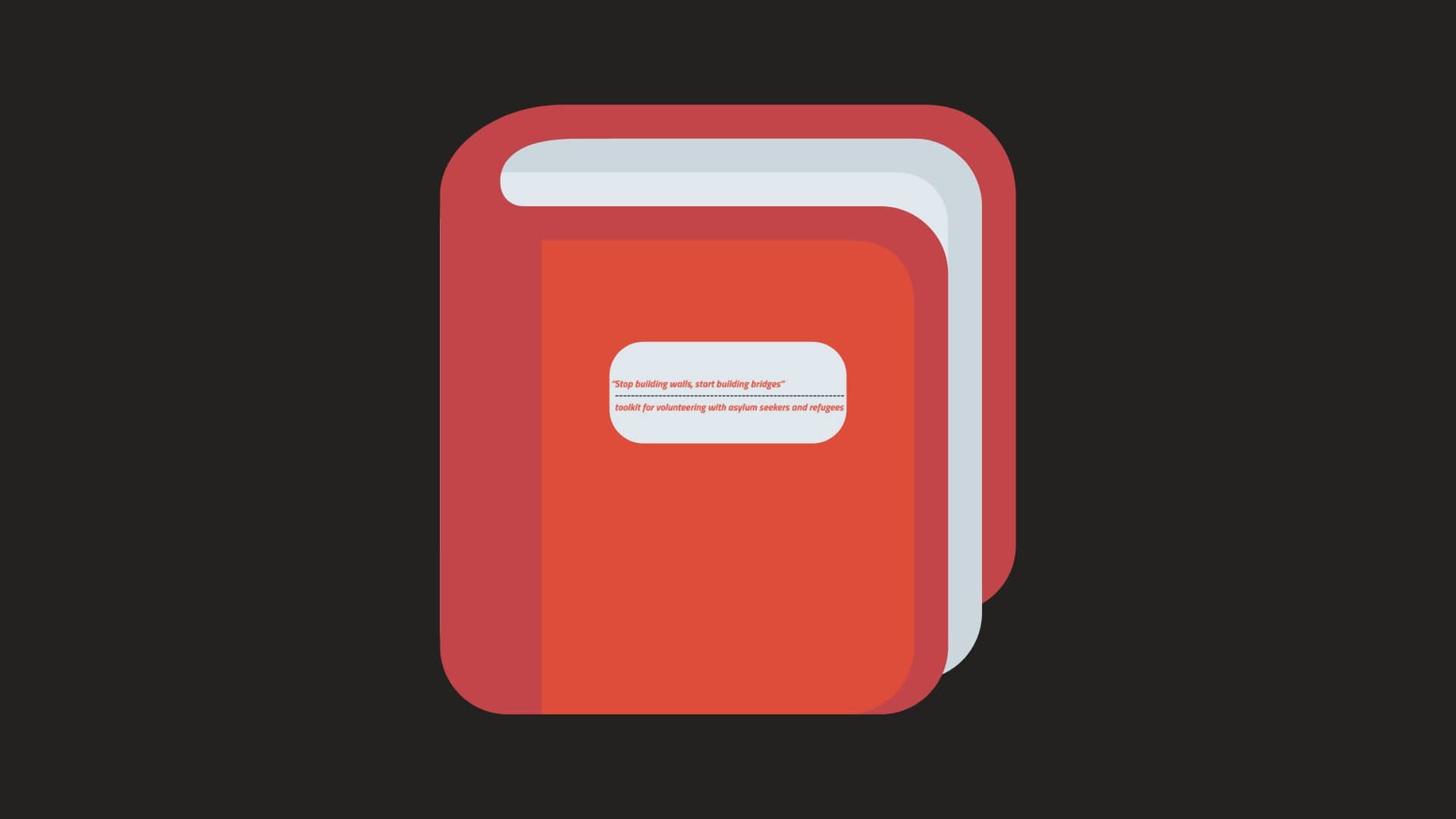
Building Bridges Statement
The Toolkit was designed to collect and share the know-how on voluntary projects involving people seeking or who have recently found refuge, as well as raising awareness on forced migration in general. The collection of guidelines, methods and case studies is non-exhaustive and should simply foster your own inspiration and support you in implementing projects on the topic. The creation of the Toolkit has been driven by the ever bigger need of the international SCI network to exchange best practices on projects in the field. It was coordinated by SCI Switzerland with the support of Útilapu Hungary. Its existence wouldn’t have been possible without the support of the Mercator Foundation Switzerland and the active contribution of the Building Bridges working group and a number of SCI branches.

Case studies are successful implemented examples sharing with you what is going on in the SCI movement on the topic of refugees and migration.
VOLUNTEER HOUSE AT THE BORDER MACEDONIA-SERBIA
When: 2015 / 2016
Context and Idea
After visiting refugee camps and stations at all the border crossings, the volunteers decided to focus their work around the Serbia-Macedonia border, in Tabanovce, a village with a refugee station. Refugees arrived there day and night. The Tabanovce refugee station was a transit zone, people seeking refugee did not stay (unless they really needed to rest and use facilities). At the station there was a toilet, food, a clothes tent, a red cross unit and about 30 UN tents.
The main work of the volunteers consisted in giving information to refugees. Often they did not even know where they were, which borders were open, how to ask asylum, what is the Dublin agreement, what would be the challenges ahead, how to look after their children in that context… The volunteers also helped local organizations in handing out food and clothes where needed. Especially during night shifts they identified vulnerable target groups and cooperated with the Red Cross to help them in need. The volunteers collected stories and documented experiences of all people involved. They spoke and connected with other volunteers all along the Balkan route through online applications.
Objectives and aims
The mission of the volunteers was to support other volunteers working with refugees, local (Tabanovce refugee station) and regional (along the humanitarian corridor that runs through the Balkan) and international. Therefore they decided to rent a volunteer house in the village, near the refugee station. This house would serve as a place to stay for local volunteers working at the refugee station; it should also provide rest for volunteers who drive aid material from far away; and it would be a centre for meetings, coordinating activities and training. Hence, a place for volunteers was opened all over the Balkan in order to start with the exchange of practice and mutual support. This place offers rest and home feeling for volunteers to share stories as well as to gather new energy, idea’ s and self confidence to go back to the field.
Often in the villages there is a hostile attitude towards newcomers. Therefore, one of the goals is to involve the local community, by inviting local youth for activities with the volunteers. Relationships with local people can be built through neighbouring contacts. In this way first hand experience can be given to the locals about who the refugees are. It was a pilot project to overcome prejudices and stereotypes, in order to change the attitude of locals in the Balkan towards the people fleeing war and their living conditions. This project can be multiplied to other locations in the Balkan and beyond.
Target groups
(Independent) volunteers working with refugees
Additional information
SAVA Working Group donation and independent fundraising efforts
CONTRIBUTE!
You can share your experience, observations, tips and tricks, pictures etc. by uploading for instance a method or a case study to the Building Bridges Toolkit. As this Toolkit is a work in progress to which all involved parties are invited to contribute, we would also be very grateful for your support and contribution in order to inspire others to continue the work towards peace and intercultural understanding.


